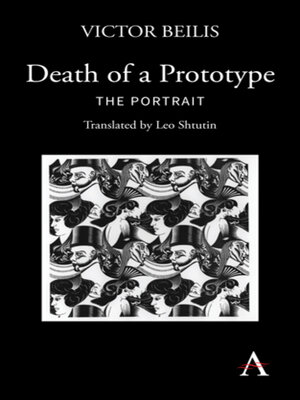
Sign up to save your library
With an OverDrive account, you can save your favorite libraries for at-a-glance information about availability. Find out more about OverDrive accounts.
Find this title in Libby, the library reading app by OverDrive.



Search for a digital library with this title
Title found at these libraries:
| Library Name | Distance |
|---|---|
| Loading... |
This is the first work by Victor Beilis to make it into English since the single-volume publication in 2002 of a duo of novellas—"The Rehabilitation of Freud & Bakhtin and Others"(translated by Richard Grose). Much like the novellas that preceded it, "Death of a Prototype" is a hyper-allusive and self-consciously difficult work. Beilis engages closely with an entire spectrum of Russian and European cultural traditions, from classical antiquity to twentieth-century postmodernism. Structurally heterogeneous and fragmented with styles, genres and narrators succeeding one another at great speed, "Death of a Prototype" is also highly balanced and controlled, in some ways recalling a contrapuntal musical composition abounding in thematic echoes and correspondences. "Death of a Prototype" simultaneously challenges and rewards the reader, especially one attuned to fine-grain detail.
|"Death of a Prototype" is the first work by Victor Beilis to make it into English since the single-volume publication in 2002 of a duo of novellas—"The Rehabilitation of Freud & Bakhtin and Others"( translated by Richard Grose). Much like the novellas that preceded it, "Death of a Prototype" is a hyper-allusive and self-consciously 'difficult' work: Beilis delights in intertextual play, inviting the reader to unravel a complex web of quotations, references and paraphrases. The author engages closely with an entire spectrum of Russian and European cultural traditions, from classical antiquity to twentieth-century postmodernism. The visual arts unsurprisingly play a particularly important role in the novel. So, too, is visuality in general: seeing and being seen, acts of perception and observation, gazing, glancing and glimpsing. The reader is confronted with an intimidating array of literary styles, all jostling against one another. Alongside several dialogue-heavy chapters—not all that different stylistically from much contemporary fiction—readers encounter poetic, archaicized prose, self-referential literary analysis, Joycean stream of consciousness, among others.







